Syria’s parliamentary elections are scheduled to take place during the second half of September 2025. This could have been a critical turning point for the new regime and the country’s future. Yet, once again, the process appears designed more to project an image of legitimacy for the international community than to reflect any genuine change in the internal situation.
These will be Syria’s first elections since the fall of Assad’s regime in December 2024. The newly elected council will be responsible for shaping the country’s future as it will be tasked with drafting a permanent constitution, implementing economic reforms, and strengthening state institutions.
Instead of a general election the election process will be based on electoral colleges that will elect representatives from each province. Of the 210 seats in the People’s Council, one-third will be directly appointed by President Ahmad al-Sharaa. The remaining two-thirds will be selected by subcommittees appointed by the Supreme Election Committee. The division of seats will be based according to provinces and population size.
Mohammad Taha al-Ahmad, who heads the Supreme Election Committee, has outlined the distribution of seats among the provinces. Aleppo secured the largest share with 32 seats, followed by Damascus and its suburbs with 22 (10 for the capital and 12 for the surrounding areas). Homs and Hama received 12 seats each, Idlib also claimed 12, while Hasakah and Deir ez-Zor were each allocated 10. Latakia was given 7, Daraa and Raqqa 6 each, Tartus 5, and finally Suwayda and Quneitra just 3 seats each.
According to regime officials, the current situation in Syria does not allow for direct elections, since many citizens are still displaced, lack identification documents, and there is no accurate census or voter registry. Nevertheless, some Middle East experts argue that under the circumstances, this is still an important and positive step for Syria representing a significant improvement compared to the past. They claim that holding elections, even in a limited form, strengthens the process of building a democratic Syria.
On August 23, the Syrian government announced that due to security issues, elections would not be held in three provinces: Suwayda, Hasakah, and Raqqa. It was decided that elections in these provinces will not take place until a secure environment is established. According to the spokesperson of the Election Committee, Dr. Nawar Najma, elections can only be held in areas under government control. The seats designated for these provinces in parliament will be reserved until elections can take place. These provinces have experienced violent clashes between Druze minorities (Suwayda) and Kurds (Hasakah and Raqqa) and regime forces, and there is still conflict between them and the regime regarding their place and status in the country (integration vs. autonomy). The minorities in these provinces repeatedly express distrust in the regime and its ability to protect them and their interests, and for now they will not receive representation in the elections.
Syrian and international organizations will be able to monitor the election process, and in addition, each province will include lawyers to ensure the credibility and transparency of the procedure. Several local organizations and associations are running training and awareness programs ahead of the elections, including workshops for members of local election committees, campaigns to raise voter awareness, and professional consultation in conflict resolution, in order to ensure transparent and efficient election management.
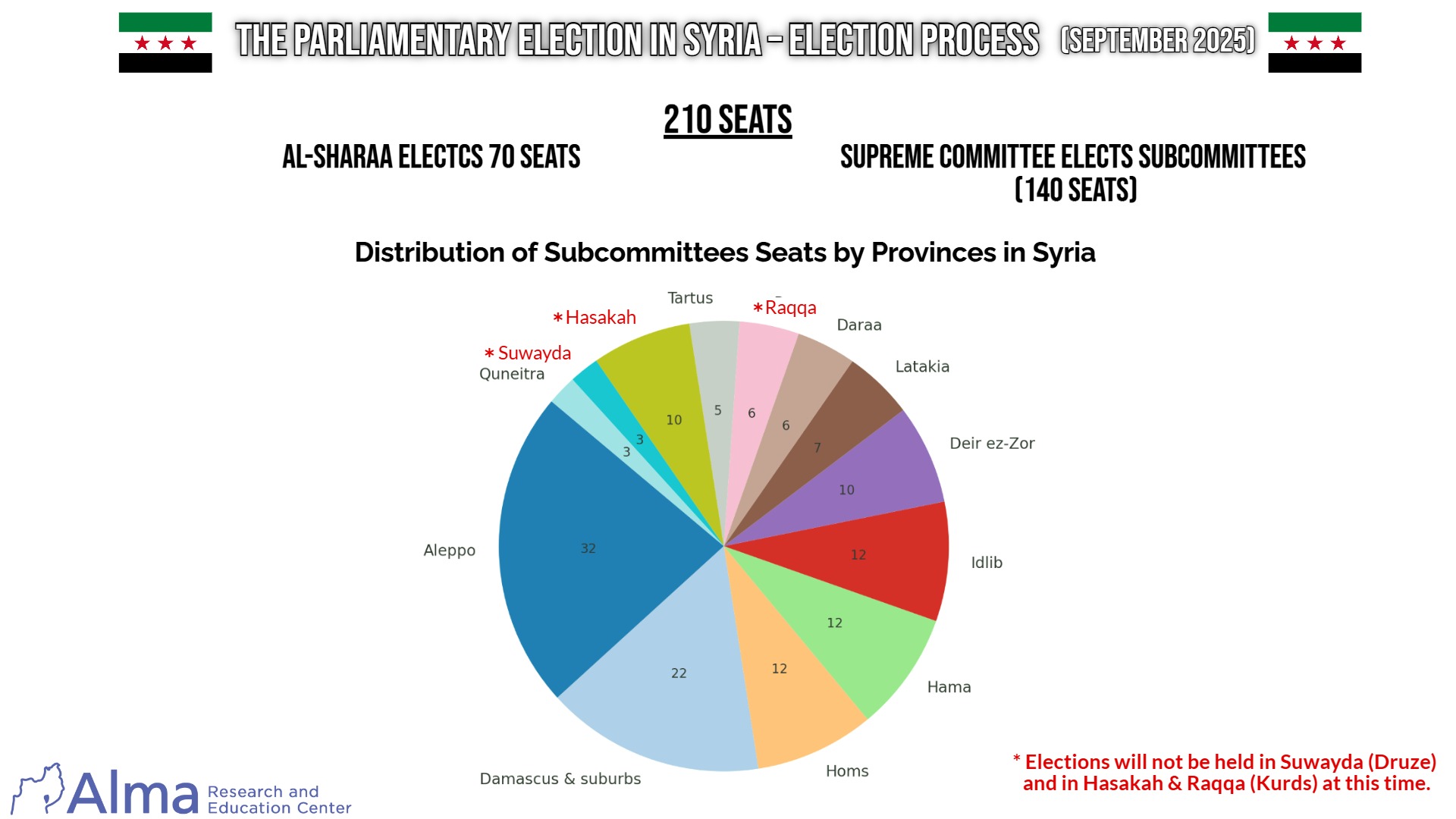
In the upcoming elections, Syrian citizens will not be voting for their representatives, either directly or indirectly. These elections are nothing more than a symbolic procedural step intended to present the new regime in a democratic light, even though in practice the Syrian public in general, and Syrian minorities in particular, will not receive representation in the new council, and power will remain in the hands of al-Sharaa and his people. The goal is to strengthen the regime’s legitimacy by creating a façade of a functioning political system without granting equal representation to citizens or allowing proper democratic procedures.
This is another step aimed at appeasing Western countries in order to gain support and assistance, without any commitment from the regime to build a pluralistic political system that protects the rights of all Syrian citizens. The willingness of the West and the international community to settle for statements and empty gestures without concrete actions by the regime to promote inclusion of all Syrian citizens in the political system, domestic stability and security, and the building of democratic institutions is problematic and encourages the Syrian regime to provide superficial solutions without addressing the many challenges of rebuilding Syria.
Alongside economic assistance, the international community needs to provide Syria with support in strengthening state institutions, managing internal conflicts, and promoting democratic processes.
The security problems in Syria are a significant challenge, but a regime committed to conducting democratic procedures must find a way to allow all citizens to vote safely and not prevent their participation in the elections. The regime in Syria faces a dual internal challenge: the relations between minority groups within Syria and the relations between different minorities and the regime. These issues require a complex political solution and enforcement of law and order by police forces operating under the regime and protecting all citizens.
All of this requires a stable and inclusive political system that can provide appropriate solutions for all citizens. As long as an accountable, transparent and pluralistic political system is not established in Syria, the current elections will not contribute to the rehabilitation of the state. The suspension of elections from the minorities and the exclusion of citizens are not a step forward, but a return to a familiar path of oppression that endangers Syria’s future.

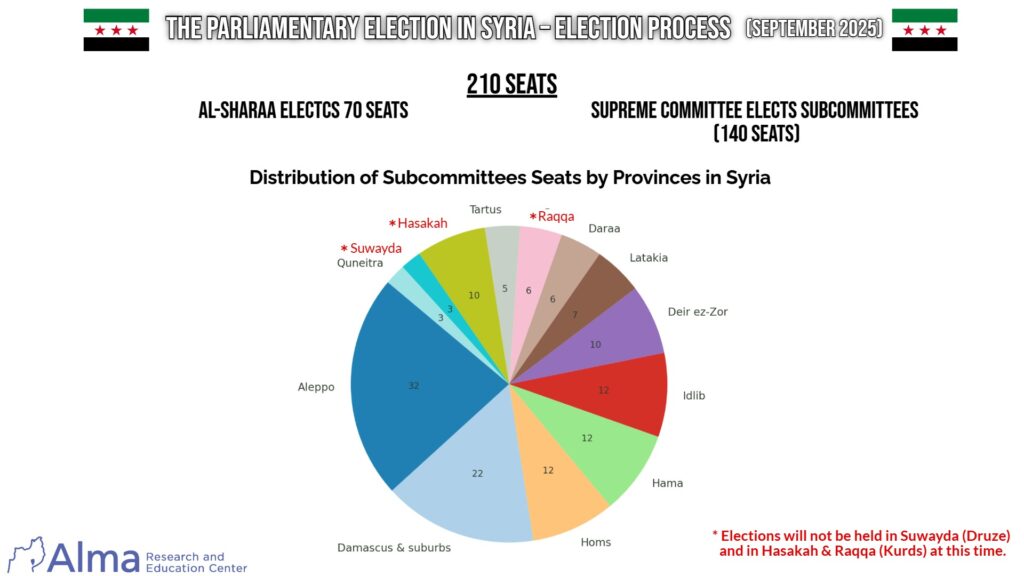

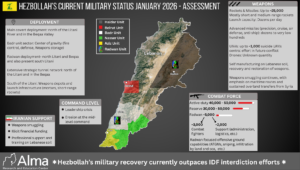
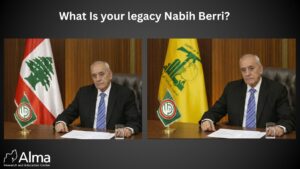
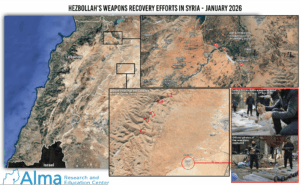
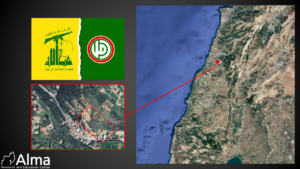
One Response
Dear Zoe,
The people of Israel can no longer tolerate the existance of terrorists disguised as legitimate politicians holding fake “elections” while plotting the destruction of the State of Israel. We must call out their delusional lies and evil intentions no matter how convincing their disguises are. Even Erdogan who helped fund the Syrian invasion is openly laying claims to Jerusalem in line with the delusional muslim brotherhood radical ideology and grandiose visions of the restoration of the ottoman empire caliphate over the territory of Israel. Erdogan and Sharra must rescind all rights to any claims to the territory of Israel publicly and in sworn affidavits as a starting point before any discussions of a unified Syrian government can even be considered. My personal preference would be the dissolution of Syria back to its separate nation states because I do not believe either of them to be capable of embracing the truth of the continuing existance of the State of Israel. This would contradict all their radical ideology that is founded upon lies.